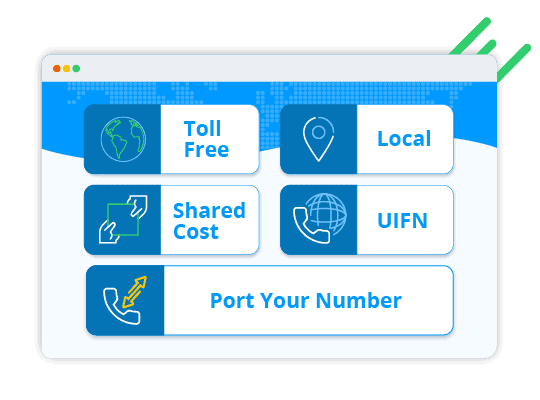Virtual Phone Numbers as a Gateway to Kuwait's Business Market
Executive Summary
Kuwait represents a significant opportunity for international businesses, characterized by its high GDP per capita, strategic position in the Gulf region, and ambitious Kuwait Vision 2035 development plan. This guide explores how virtual phone numbers can serve as an effective entry point into the Kuwaiti market, enabling businesses to establish a local presence while navigating this wealthy market's unique business environment.
Market Overview
Kuwait's Business Landscape
Kuwait maintains a distinctive position in the Gulf region as a nation with substantial oil wealth and growing diversification initiatives. The country's push toward economic transformation creates opportunities across various sectors, particularly in finance, technology, and professional services. Despite its relatively small population of approximately 4.3 million, the country's high purchasing power and government initiatives to modernize the economy make it an attractive market for specific business segments. The New Kuwait 2035 vision emphasizes private sector development, digital transformation, and the creation of a knowledge-based economy.
Communication Infrastructure
Kuwait's telecommunications sector features advanced infrastructure and high digital adoption rates. The country maintains mobile penetration rates exceeding 95%, with sophisticated 4G coverage across populated areas and expanding 5G networks. Fixed broadband services continue to develop, while government initiatives promoting digital transformation enhance the overall communications ecosystem. This infrastructure supports modern business operations while maintaining international service standards.
Virtual Numbers in Market Entry Strategy
Strategic Advantages
Virtual phone numbers represent a strategic entry approach for the Kuwaiti market, offering particular value for businesses aligned with the country's economic diversification goals. Organizations can establish presence without immediate physical infrastructure investment, allowing them to test market opportunities and build relationships effectively. This approach proves especially valuable given Kuwait's specific requirements for foreign business operations and the high cost of physical establishment.
Integration with Business Operations
Successful implementation requires alignment with Kuwait's sophisticated business environment and regulatory requirements. Companies must integrate virtual numbers with their customer service strategy while considering the country's specific business hours and operational requirements. The system should support multiple languages where appropriate, reflecting Kuwait's international business environment.
Industry-Specific Applications
Technology Sector
Kuwait's evolving technology sector, supported by government modernization initiatives, presents opportunities for virtual number implementation. Software companies can provide technical support services, while fintech operations focusing on Islamic banking solutions can establish local presence. The country's smart city initiatives and digital transformation goals create additional opportunities for technology service providers.
Financial Services
The financial services sector represents a primary opportunity for virtual number implementation. Banks, investment firms, and insurance companies can provide local support while maintaining compliance with both regulatory and Shariah requirements. The system particularly benefits organizations targeting Kuwait's sophisticated financial services market and investment opportunities.
Professional Services
Professional service firms can leverage virtual numbers to establish presence in Kuwait's developing service sector. Consulting firms can manage client relationships effectively, while legal services can maintain communications across jurisdictions. Business service providers can coordinate with clients exploring Kuwait's investment opportunities, particularly in priority development sectors.
Addressing Common Concerns
Quality and Reliability
Modern telecommunications infrastructure in Kuwait supports reliable virtual number implementation. Redundant systems ensure consistent service quality, particularly important in a market with high service expectations. Regular monitoring and maintenance protocols address potential technical concerns while maintaining international service standards.
Regulatory Compliance
Companies must navigate Kuwait's regulatory environment carefully when establishing virtual numbers. This includes proper registration with telecommunications authorities, adherence to data protection regulations, and compliance with specific sector requirements. The regulatory framework requires attention to both technical compliance and local business regulations.
Implementation Guide
Phase 1: Preparation
Successful implementation begins with thorough market research and understanding of Kuwait's business environment. Companies must develop a comprehensive communication strategy that considers specific market requirements. Selection of virtual number providers should focus on those with strong infrastructure and support capabilities aligned with local standards.
Phase 2: Launch
The launch phase emphasizes staff training in both technical and operational aspects. Companies must establish robust testing protocols, develop clear customer service guidelines, and prepare marketing communications that resonate with the local business community. Attention to quality standards and professional service delivery proves crucial during this phase.
Phase 3: Operations
Ongoing operations require continuous monitoring of performance metrics and customer feedback. Organizations should regularly optimize their service delivery while maintaining flexibility to scale operations based on market response. Regular review of communication patterns and customer preferences helps refine service delivery and enhance effectiveness.
Best Practices
Customer Service
Effective customer service in Kuwait requires understanding local business standards and expectations. Organizations should maintain consistent response times while demonstrating professional service delivery. Training staff in local business practices ensures appropriate customer interactions and service quality maintenance.
Technical Setup
Technical implementation requires robust systems that ensure reliable service delivery. Regular maintenance and monitoring protocols help maintain service quality, while backup systems prevent service interruptions. Integration with local telecommunications infrastructure ensures optimal performance and service consistency.
Business Development
Successful business development in Kuwait relies on understanding market dynamics and government development priorities. Organizations should continuously gather market intelligence, adjust strategies based on feedback, and scale operations in response to opportunities while maintaining service quality and professional standards.
Next Steps
Implementation begins with detailed market analysis and development of specific service requirements. Companies must select appropriate virtual number providers, develop realistic implementation timelines, and prepare necessary resources. The process should emphasize alignment with local business practices and technical excellence while maintaining operational efficiency.
Conclusion
Virtual phone numbers offer a strategic entry point into Kuwait's sophisticated market, particularly valuable for companies aligned with the country's economic diversification goals and Vision 2035 initiatives. Success requires attention to professional service delivery, technical reliability, and regulatory compliance. The combination of Kuwait's high purchasing power, advanced infrastructure, and focus on economic transformation makes it an attractive market for companies prepared to invest in proper market entry strategies.
























